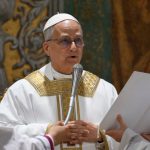The Minister of Finance and Coordinating Minister of the Economy,Wale Edun, shed light on the Federal Government’s strategy to address economic challenges and related issues in the country.
In an interview with Channels Television on Friday, Edun touched on various topics, including the cost of living, inflation, cash disbursements, food security, and collaboration with the Central Bank of Nigeria.
Amidst rising protests linked to the removal of fuel subsidy and the floating of the naira, Edun acknowledged the surge in the cost of living and highlighted that the government foresaw this consequence due to the implemented reforms.
“What I think is important to say at this time is that food prices in particular are elevated, and we all know why. It is part of the generally expected rise in inflation as the macroeconomic measures, the reform measures, the corrective measures to put the economy on a straight path take effect,” Edun explained.
He emphasized President Bola Tinubu’s commitment to fulfilling promises, especially to the poor and vulnerable.
Edun outlined the intervention program, stating, “The focus of Mr. President is on keeping his promise, particularly to the poor and the vulnerable. Food prices are elevated, and the purchasing power is limited, and that is what Mr. President is speaking directly to through the intervention program of direct payments of N75,000 each over three months.”
The minister detailed the financial support, indicating, “That is N25,000 a month to 15 million households, and each household is about five people. So, that effectively provides funding for 75 million people.”
Edun also reiterated the government’s initiative to provide grains to ease the impact of rising food costs.
“More recently, there was a 42,000 metric tonnes release from the strategic reserves with another 60,000 metric tonnes to come. This is all in a bid to make sure there is food in the marketplace.”
Addressing the removal of fuel subsidy, Edun pointed out that the previous regime was costing Nigeria N400 billion monthly.
“In terms of the government’s finances, they have been revamped and repaired,” he stated.
“And it is not just the fact that there has been the removal of the petroleum subsidy, which was costing N400 billion every month to the government at its height.”











